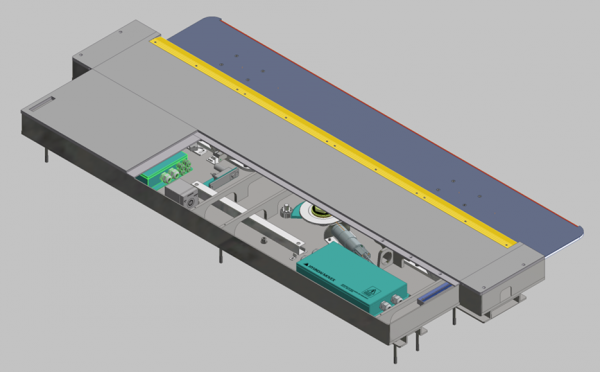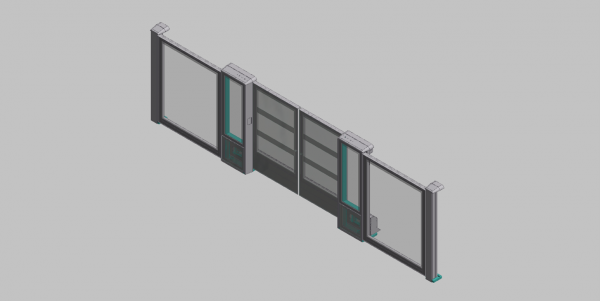Privacy Policy
LEGAL NOTICE
Identification of the company:
Name:
EPD Networks
E-mail: epd@epd-networks.com
Adress: 5681 Beach Blvd, Second Floor Buena Park,
CA 90621
The industrial and intellectual property rights of the website www.epd-networks.com, its source code, design, navigation structure, databases and the various elements contained therein are the property of EPD Networks, to whom the exercise corresponds exclusive rights of exploitation of the same in any way, and especially the rights of reproduction, distribution, public communication, provision and transformation.
Regarding reviews of third-party services that may appear on the website, EPD Networks, recognizes the rights of industrial and intellectual property in favor of its owners, not implying their mere mention or appearance on the website the existence of rights over the same.
The unauthorized use of the information contained on this website, its resale as well as the infringement of the intellectual or industrial property rights of EPD Networks will give rise to the legally established responsibilities.
EPD Networks reserves the right to update, modify or eliminate the information contained in its website, in addition to its configuration, services or conditions of access and use at any time and without the need for prior notice.
EPD Networks does not guarantee the absence of interruptions or errors in accessing the website, nor will it assume any responsibility for technical problems or failures that occur during the Internet connection.
EPD Networks reserves some of the services offered through the web, such as the Customer Area, to users with a code assigned by EPD Networks
EPD Networks neither does it guarantee the absence of viruses or other elements that may cause alterations in your computer system (software and hardware) or in the electronic documents and files stored in your computer system. Therefore, it excludes any responsibility for damages that may occur in the computer system, electronic documents or user files.
The provision of the service of the website and of the other services has in principle an indefinite duration. EPD Networks, however, is authorized to terminate or suspend the provision of the service at any time. It is strictly forbidden to modify, transmit, distribute, reuse, re-send or use all or part of the content of this website (texts, images, audio and / or video) for public or commercial purposes without the written authorization of EPD Networks
Any user or third party that wishes to include within its web page any type of link or hyperlink that connects with the website of EPD Networks or with the pages that compose it, it will have to previously notify EPD Networks, who must expressly agree to said link or hyperlink.
This website uses cookies (small files that the server of ECO INTELLIGENT GROWTH, S.L sends to the computer of the person accessing the page) to the extent necessary for the proper functioning and visualization of the website by the user.
PERSONAL DATA PROTECTION
Data Controller: EPD Networks (hereinafter “THE COMPANY”).
Contact data of THE COMPANY and the Data Protection Officer: 5681 Beach Blvd, Second Floor Buena Park, CA 90621, email epd@epd-networks.com.
THE COMPANY, as Data Controller, informs the data subject that his or her personal data are collected for the purpose of managing the administrative aspects of our relationship.
The personal data provided will be stored for the duration of the contractual relationship, after which they will be blocked for the legally established period and subsequently destroyed.
You are hereby informed that your data may be transferred to other Group Companies in the rendering of the services commissioned (IGSC INC..).
The data subject grants authorisation for his or her personal data to be transferred to third countries outside the European Economic Space due to the nature of THE COMPANY’s IT infrastructure.
The data subject has the right to obtain from THE COMPANY confirmation as to whether or not personal data concerning him or her are being processed. The data subject has the right to access his or her personal data, as well as to request rectification of inaccurate data or, as the case may be, request erasure when, among other reasons, the data are no longer necessary for the purposes for which they were collected. In certain circumstances, the data subject may request the limitation of the processing of his or her data, in which case the data will be stored only for the purpose of defence of claims. In certain circumstances, and for reasons related to his or her particular situation, the data subject may object to the processing of his or her data. THE COMPANY will cease to process the data, except for compelling legitimate grounds or for the exercise or defence of legal claims. Pursuant to the right of portability, the data subject should be allowed to receive personal data concerning him or her in a structured, commonly used, machine-readable format and to transmit it to another controller
The applicant may exercise his or her rights:
If you consider that your rights have not been properly attended to, you are entitled to submit a complaint to the Spanish Data Protection Agency.
이용약관
서비스 이용약관에 대한 내용을 입력하십시오.


 이전글
이전글

